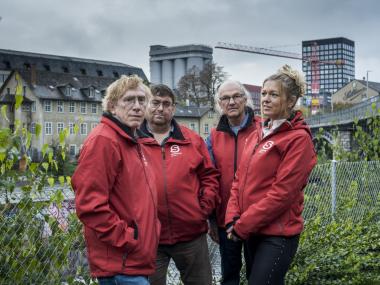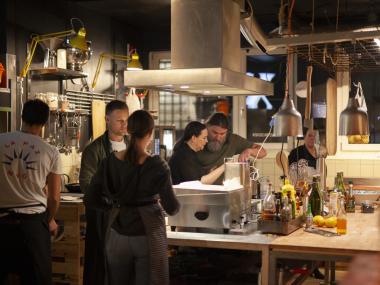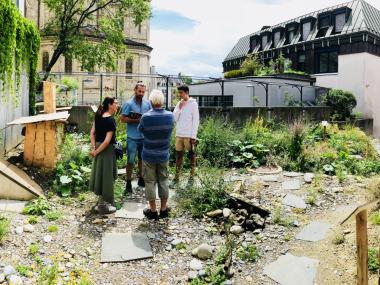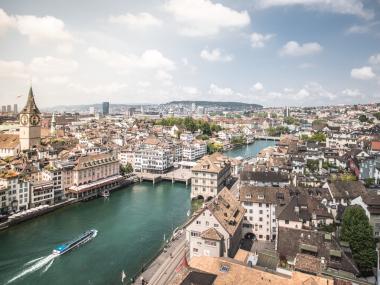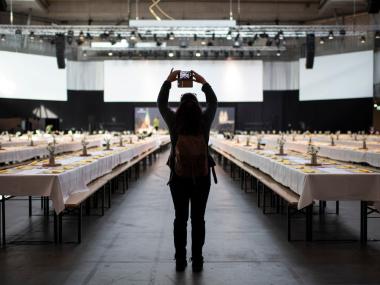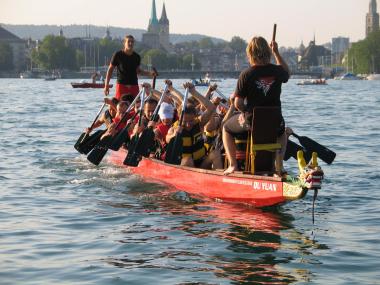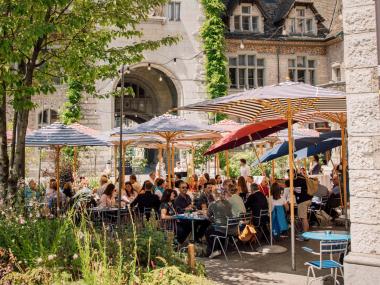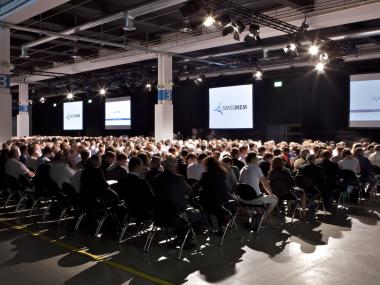Six Practical Tips for Sustainable Event Planning
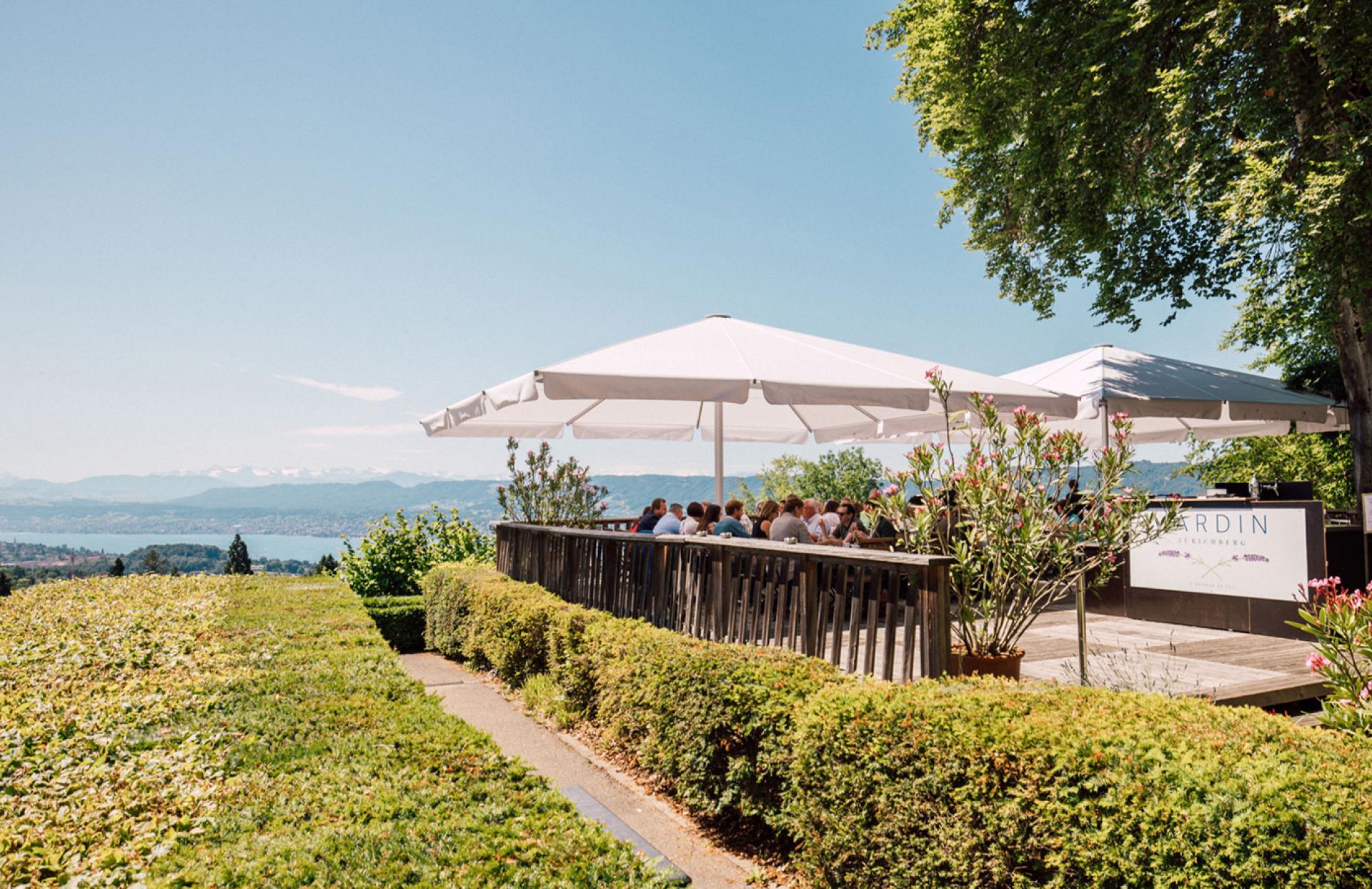
How does sustainability influence your decision-making processes? What challenges do you encounter?
Zürich Tourism posed these questions to the events industry – or more specifically, to the organizers of conventions, events and meetings for associations, companies and agencies.
Ninety-seven percent of the respondents take sustainability into account as a criterion in the decision-making process and 35% referenced sustainability efforts with regard to travel destination and event location as crucial. (You can find the results of the survey here.)
The overwhelming amount of information, the fear of stretching the budget, and a lack of expertise gets in the way of organizing sustainable events. Here you will find simple tips to help you get started.
Sustainable Solutions That Save Costs

"It's just too expensive!" – this is the most cited answer to the question of what prevents event planners from organizing sustainable events. But there are smart ways of saving emissions at no extra costs.
When it comes to making events sustainable, it’s always worth asking yourself: is this necessary – or is it possible to do things differently? Here are some suggestions that save emissions while going easy on the budget.
Catering: Choose Consciously, Plan Well
What is served has a huge impact on the footprint of an event. Sustainable catering is possible without restricting enjoyment and quality.

- Vegetarian or vegan: Avoiding foods of animal origin makes a big difference. Offer vegetarian or even vegan food as standard and meat or fish menus as an optional extra. The gastronomy scene in Zurich is known for its progressive and sustainable offerings.
- Water: Swiss tap water is known for its quality and is suitable for use as drinking water. Serving it bottled or in carafes can eliminate the cost of mineral water.
Incidentally, there are over 1,200 wells in the city of Zurich, all of which offer the best drinking water. You can refill drinking bottles there at any time. - Advance planning: If you know the exact number of participants and their food preferences, you can forward these to the catering company in advance. These figures make it easier to plan and source food, avoiding unnecessary food waste and disposal costs.
- Seasonal and local: Opt for seasonal, organic food from the region. The shorter the distance from the catering provider to the location, the lower the emissions.
Short Transportation Distances
That which applies to the goods is also true of the program: short transport routes are key. They are practical, save emissions and keep the costs of passenger transport low.
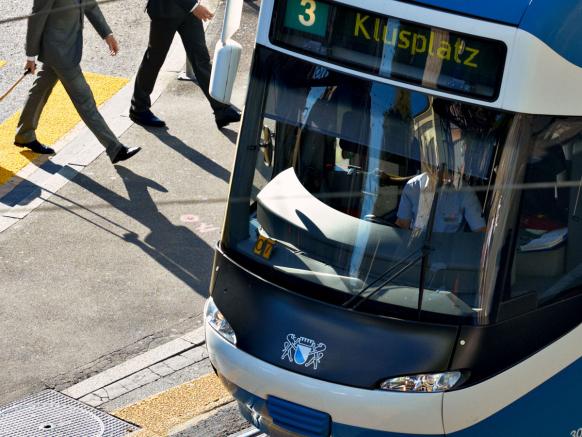
- Travel: Zurich is easy to reach by train from many cities in Europe (direct connections).
- Location: Choose restaurants and accommodation that are close to the event location.
- Change of location: In Zurich, distances are short and can be easily covered by public transport, or even on foot: a short walk in the fresh air can be pleasantly relaxing.
- Public transport: The Swiss public transport network is well developed and safe to use. You can get almost everywhere in Zurich by bus, tram or train. Day tickets are available for guests: More about the Zürich Card
Reduce, Reuse, Recycle

When people meet, waste is generated – and it must be disposed of properly. Or even better: avoided.
Tips for Managing Waste
What is most important when planning a sustainable event? There was one clear answer in the survey: waste reduction and recycling are at the top of the list for event planners.
Sorting and disposing of waste correctly is now regarded as a matter of course – and the second-best solution. Even better? Consistently reducing waste. After all, recycling requires outlay too. Here are some tips that can be quickly put to use.
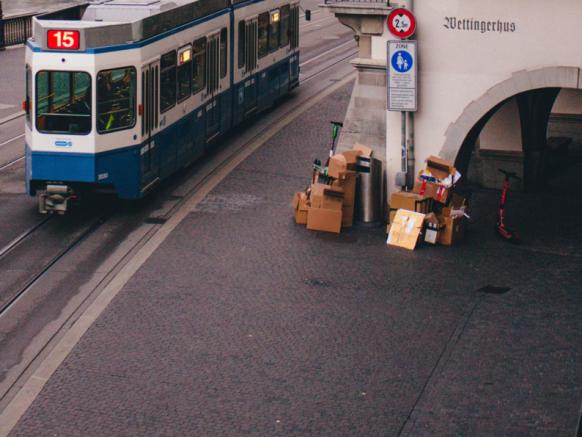
Recycling and disposal
Waste separation involves motivation and psychology. Make it as easy as possible for your guests and staff to separate waste properly. Ask venues and service providers like catering companies about their waste and disposal management and what measures they intend to take.
- Collection points: Waste can be separated easily at prominently placed collection points. It is important to have clear labeling, especially if international guests are present.
- Cigarettes: To make sure butts do not end up on the ground, ensure plenty of ashtrays are provided wherever smoking is permitted.
In Switzerland, the disposal of waste is subject to fees. The disposal of glass, cardboard, compost, paper, PET bottles and metal is free of charge. So careful separation is financially worthwhile too.
Waste Avoidance
Generally speaking, you should always ask yourself: do I really need this?
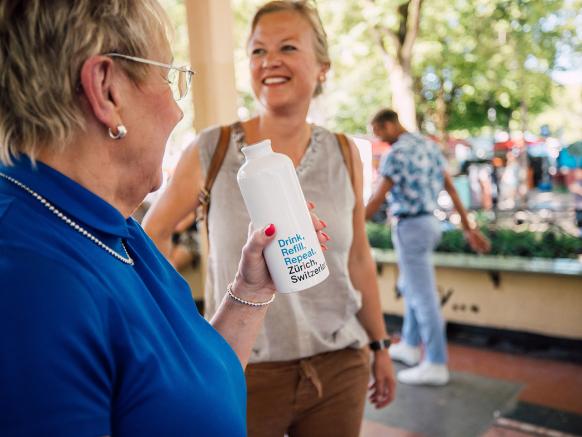
- Reusable instead of disposable: Whether tableware, decor or giveaways, avoid products that are intended for single use. Almost everything can be rented, even potted plants, artificial flowers and other decorative materials. Choose eco-friendly, natural or regionally produced giveaways that are integrated into the program and can be used for a long time.
- Drinks on tap and large containers: Serving drinks on tap or from large containers saves on packaging like aluminum cans, glass and PET bottles. Offer food in large packages instead of individual portions.
- Smaller meals can be offered without dishes and cutlery, such as pizza slices, raclette slices or a sausage in a bun. Only napkins are needed.
- Give away, don’t throw away: Give away anything suitable to take home after the event to guests, helpers or those in need, i.e. leftover food, flowers or decorative material. Large quantities of edible products and giveaways can be donated.
Ditch Your Guilty Conscience and Feel Good

"Exhausting” and “often linked to a guilty conscience” – that’s how the event planners surveyed perceived efforts towards sustainability. Isn’t there an easier way?
Anyone dealing with sustainability has a long road ahead of them. Don’t take on too much at once. First, concentrate on the aspects that you can control – and that are important for the event.
Managed that? Then it’s time to gradually raise the bar. Get started before the event.
Raise Awareness and Get People Involved
Sustainability is an event goal? Let your partner companies and participants know. Make sure that internal and external communications highlight the event vision and how everyone can contribute.
Raise awareness among everyone involved: if people know the goals and feel involved, they are more likely to understand the meaning behind all the effort, which will increase the willingness to help. Give participants the opportunity to submit ideas for sustainable initiatives in advance. It’s easier to discover potential for savings and improvements together.
Encourage and Reward
Make sustainable behavior attractive and reward it. Encourage participants to choose the climate-friendly options by using incentives, games or competitions.
- Combined tickets for the event and travel promote the use of public transport. Point out the CO2e savings.
- Those who travel to the event by train will receive a day ticket for local transport free of charge.
- Anyone volunteering in the supporting program will receive a souvenir as a thank you.
- Anyone who submits their own idea to promote sustainability will automatically be entered in a prize draw.
- Honoring the participants who achieve a particularly low emission consumption.
Nudging Instead of Lecturing
Acting sustainably often means changing habits – and people tend to have a hard time with that. Therefore, “nudging” is recommended as a strategy for changing behavior. This is something that is ever-present in everyday life – usually people do not consciously perceive it.
- Adjust pre-selection: If the vegetarian menu is listed as standard, “with meat” becomes an option that you have to actively choose.
- Placement: At the buffet, regional and seasonal dishes are placed prominently, with the less sustainable ones further back.
- Social roles and norms: The argument that “everyone else is doing it” holds water – mention how many people have chosen to travel by train.
- Cues: Clearly mark the way via the stairs, e.g. with footprints on the floor and signs. This makes the stairs a healthy alternative to the elevator.
- Information: Simple messages often give the impetus to opt for environmentally friendly behavior. Make a note about where the tap water comes from and that it is suitable for drinking.
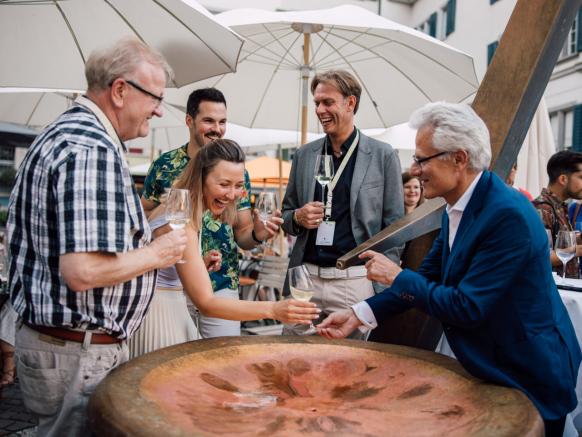
Sustainability: But Make it Fun and Impactful

Waste prevention, local produce, transport and accessibility are most important when it comes to planning sustainable events. The last thing that comes to mind is the social program. Right?
Social Programs
Admittedly, the greatest emissions savings won’t come from the supporting social program. But it does offer an opportunity to experience sustainability and make a positive contribution to guests or the population at large.
There are many activities on offer in and around Zurich where participants can play an active role themselves. This allows them to learn about aspects of social, ecological and economic sustainability using real-life examples. These are three particularly popular activities – all sustainable and eventful:
Legacy
The event planners surveyed rated the goal of leaving behind a positive long-term impact at the venue – also known as a legacy – above the social program. A positive legacy outlasts an occasion. This could be cultural, economic or physical in nature.
Volunteering
The city of Zurich offers groups the opportunity to do something important together. There’s something for everyone: whether it’s fighting problem plants, restoring forest paths, maintaining hedges or upgrading wetlands. People can join in and get their hands dirty doing something to benefit the local flora and fauna. Private organizations like Swiss Parks, WWF and Tischlein deck dich offer similar activities.
What Do You Want to Leave Behind?
Legacies are very individual and depend on the expertise offered by the event. At sporting events, professionals train up-and-coming talent. In a similar vein, workshops or talks might be offered to the public at a specialist congress.
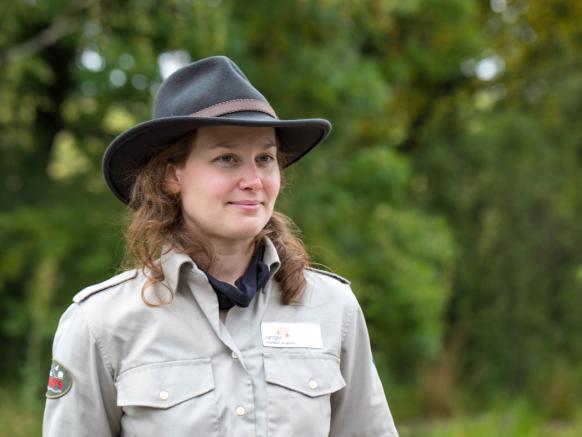
Get There Quickly

Tips and recommendations on sustainability are valuable. But is it possible to measure what sustainability efforts actually achieve? And is offsetting a good choice?
Measuring and Comparing Savings
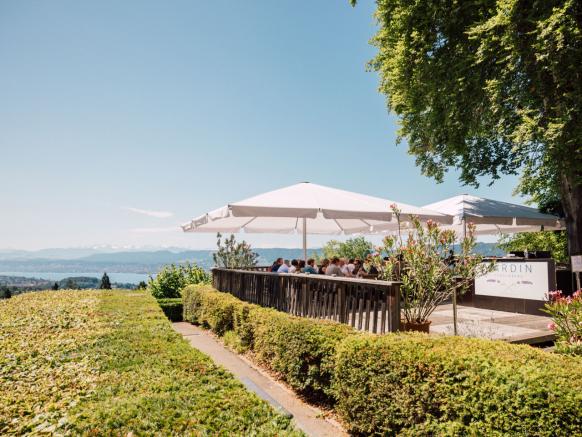
The MyClimate calculator is specially designed for events and can be accessed free of charge. This allows you to calculate emissions online. What you need are figures such as the duration of the event, the number of participants or the air-conditioned event surface area.
Play through different scenarios in the calculator. Try an event with vegetarian catering, then try one without. By comparing the emissions, you can see exactly how much you can save with a measure.
Offsetting Emissions
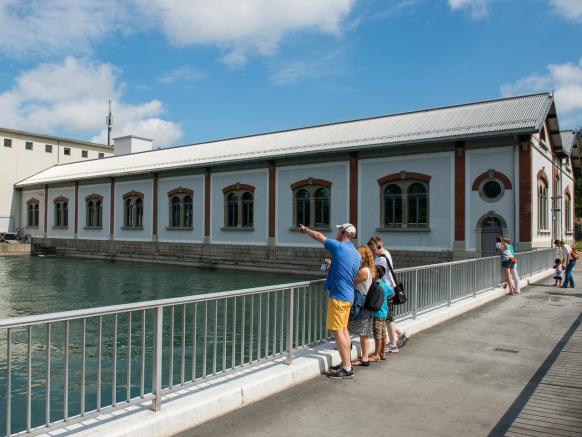
Reducing emissions is always the best option. Unavoidable emissions can be offset by supporting valuable climate protection projects.
Zürich Tourism recommends MyClimate and South Pole for calculating CO2e emissions and offsetting. Providers’ calculation methods differ, as does the type of projects they invest in.
When choosing the project, it is important that they are certified under the Gold Standard. In addition to the actual CO2e reduction, these also contribute to the sustainable development of the respective region.
Watch out for Greenwashing
Showcasing your efforts to the outside world is legitimate. One thing that is taboo, on the other hand, is faking or exaggerating sustainability efforts in order to polish up your image.
- In any case, avoid touting an event as sustainable if it isn’t.
- Show what measures are planned for the event. Transparency and concrete examples strengthen credibility.
- Ecology is only one aspect of sustainability. According to the three-pillar model, economic and social aspects are just as important and should therefore be taken into equal consideration.
Perspective, Not Chaos

Labels, rankings, certifications – new ones are added all the time. Here's how to keep a perspective.
Labels and Certifications
In the survey, event planners report difficulties in keeping track of sustainability labels and certifications. This is not surprising, because there is no one standard: every label and every certification has its strengths and weaknesses and they are difficult to compare internationally.
A Sustainable Destination is Half the Battle
Whether travel, infrastructure or working conditions, many of factors that make an event sustainable can be ticked off by the choosing the right location. The following rankings and standards apply here:
- Global Destination Sustainability Index
The GDS Index has been in existence since 2017 – it now ranks more than 60 congress destinations. Zurich is currently ranked 17th. The data is useful for event planners and is reviewed annually as part of an audit. - Smart City Index
This global index is one of many factors included in the GDS Index. Zurich is ranked second (out of 102), scoring top marks for recycling services, safety and public transport infrastructure.
Standards for Sustainable Event Management
- ISO 20121
Providers, operators of venues and companies or event agencies can be certified under this internationally recognized standard for sustainable event management. ISO 20121 is suitable for larger and recurring occasions and takes into account the United Nations Sustainable Development Goals (SDG). - Other internationally recognized certificates covering all three aspects of sustainability are Earthcheck, events industry council, Green Globe, Green Key, Green Tourism, ISO 14001:2015 and ISO 20121:2012. All are Swisstainable Level 3 and recognized by the GDS.
- Swisstainable
Switzerland Tourism has initiated a sustainability program that motivates partner businesses to act sustainably. There are three levels, whereby the third level is only achieved with an external certificate.
